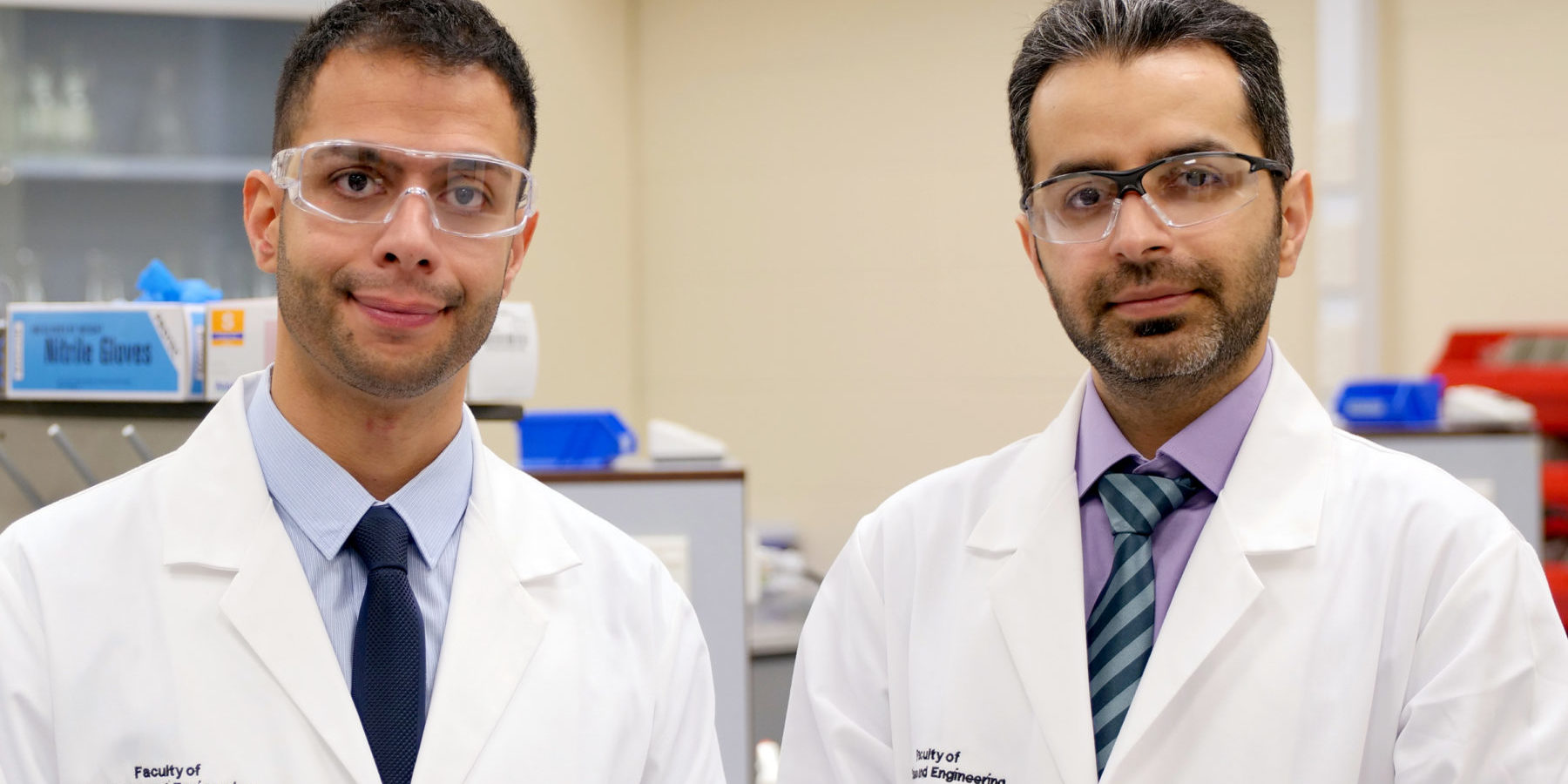Self-healing bio-concrete technology sounds like it has stepped straight out of a sci-fi movie.
University of Waikato researchers Aydin Berenjian and Mostafa Seifan have cracked a problem that has been plaguing scientists and the construction industry worldwide. Concrete is a versatile and widely used building material but it is vulnerable to damage and requires monitoring and maintenance to avoid structural weakening or failure. By adding specific bacteria and nutrients into the concrete mix, the scientists have found a way to make concrete repair itself with calcium carbonate as cracks develop. The process is environmentally friendly and the resulting product more durable than conventional concrete. As testing moves from the lab to a larger scale, Berenjian and Seifan are excited about the potential to apply this nanobiotechnology to other sectors including the oil and gas industry, medicine and environmental remediation.
Aydin Berenjian and Mostafa Seifan
University of Waikato Researchers
Engineering Science Award
Self-healing bio-concrete technology sounds like it has stepped straight out of a sci-fi movie.
University of Waikato researchers Aydin Berenjian and Mostafa Seifan have cracked a problem that has been plaguing scientists and the construction industry worldwide. Concrete is a versatile and widely used building material but it is vulnerable to damage and requires monitoring and maintenance to avoid structural weakening or failure. By adding specific bacteria and nutrients into the concrete mix, the scientists have found a way to make concrete repair itself with calcium carbonate as cracks develop. The process is environmentally friendly and the resulting product more durable than conventional concrete. As testing moves from the lab to a larger scale, Berenjian and Seifan are excited about the potential to apply this nanobiotechnology to other sectors including the oil and gas industry, medicine and environmental remediation.





